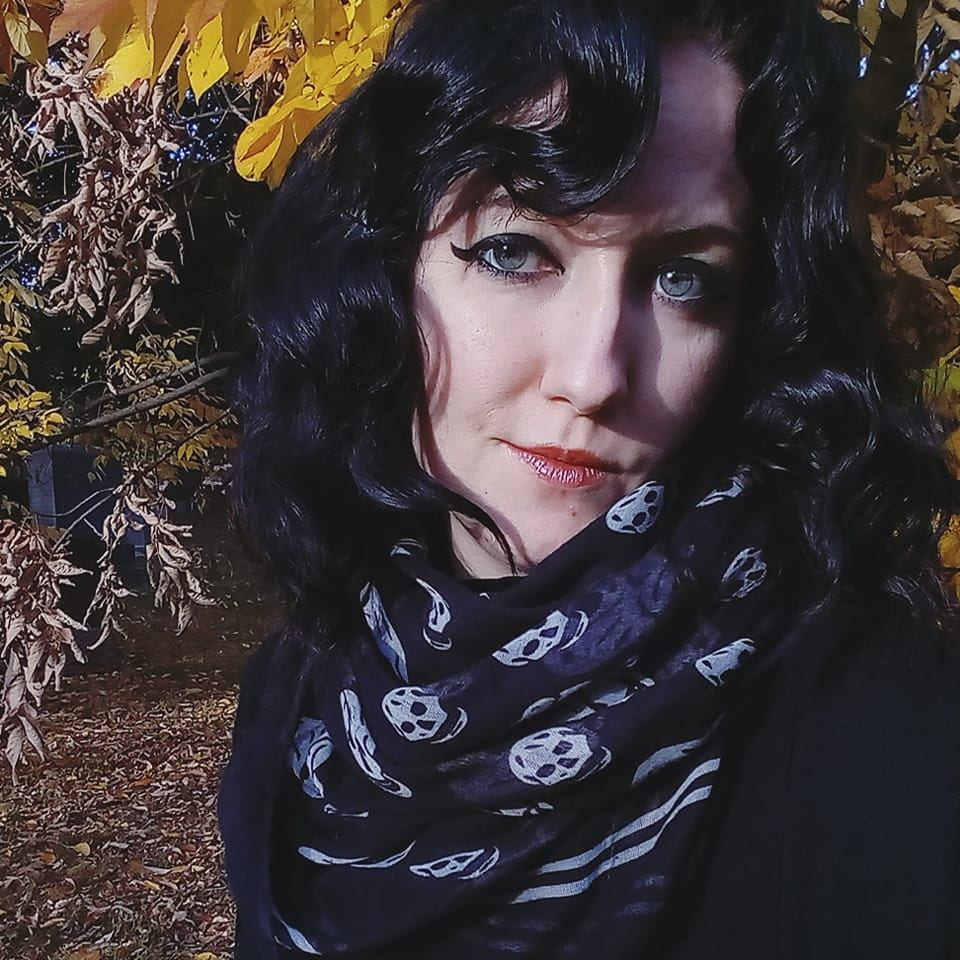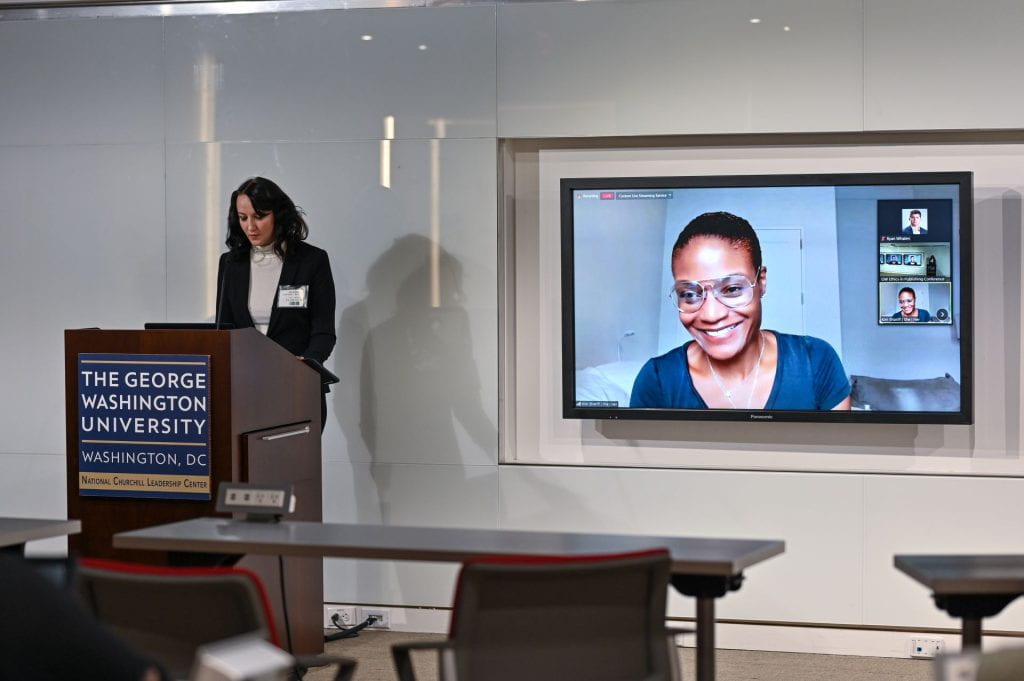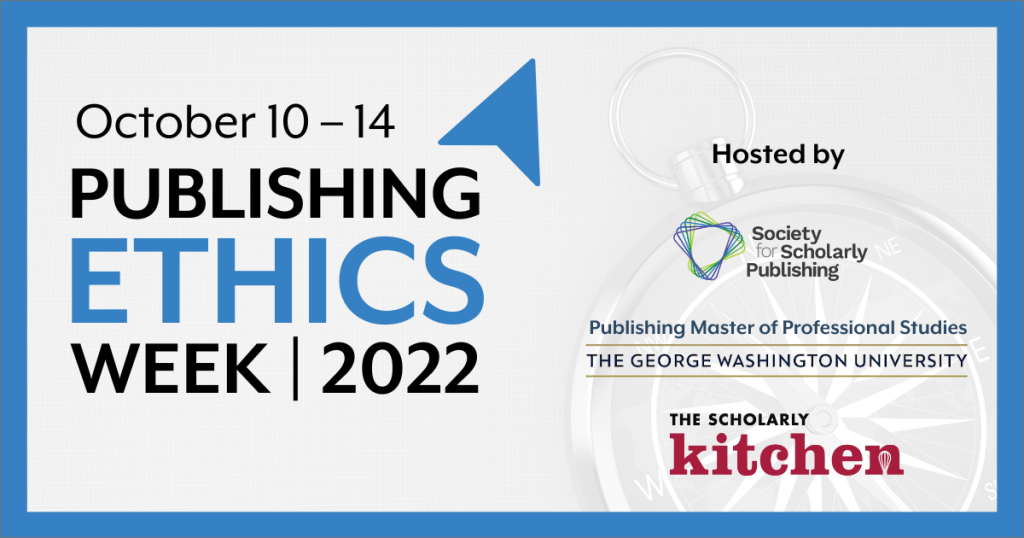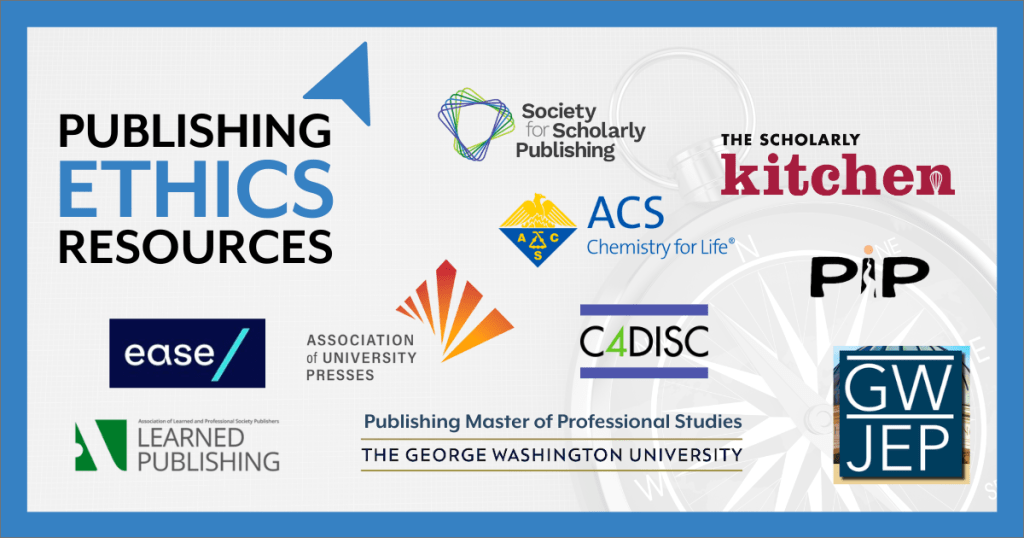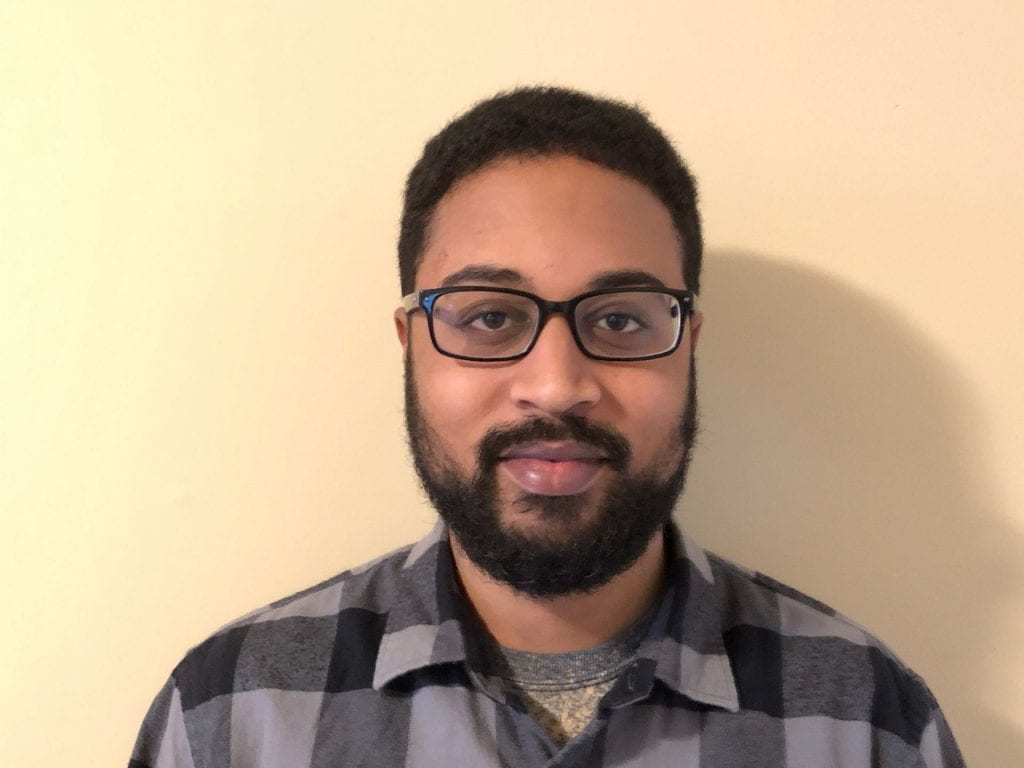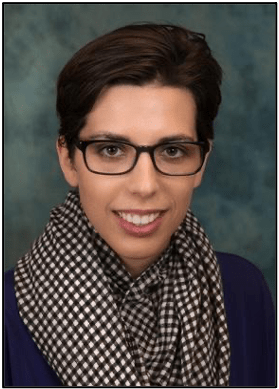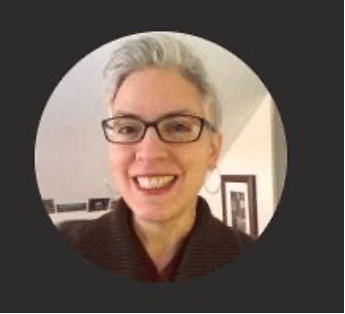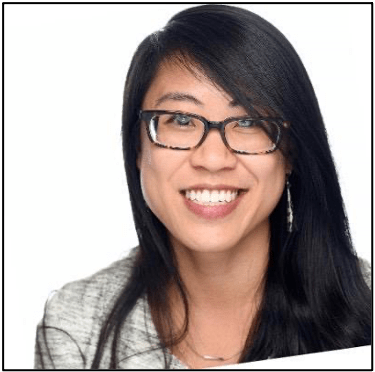Jay Soglo is Production Controller at Johns Hopkins University Press (JHUP) and an outstanding graduate of the Master of Professional Studies in Publishing program, College of Professional Studies, George Washington University. Starting as publishing operations assistant at JHUP after his second semester in the GW publishing program, he has already demonstrated leadership in the field, moderating a successful and dynamic session on accessibility at the Association of University Presses Annual Meeting, speaking at the GW Ethics in Publishing Conference, authoring a paper published in the GW Journal of Ethics in Publishing, and as a mentor to others in the field.
What was the most challenging aspect of the MPS in Publishing program? What was the most rewarding?
The most challenging aspect of the publishing program was the time-management element. Juggling a family with young children and a full-time job required an adjustment and some sacrifices – mainly my social life (temporarily).
Part way through your studies in the MPS in Publishing program, you were hired in the books production department at Johns Hopkins University Press, and within a year received a promotion. What was it like to be working in a press while completing your degree? Were you able to use assignments to inform your work or vice versa?
Working in a press while completing my degree was great. Not only was I learning publishing skills in the program, but many times they would come in handy immediately. For example, I started the production management course as I was promoted. Every lesson that semester was directly relevant to my job. The biggest advantage of working in publishing while in the MPS program was having the ability to ask a professional for advice for nearly every aspect of publishing.

What are some of the reasons you decided to pursue the MPS in Publishing degree? Why did you choose GW specifically?
During the pandemic lockdown, I decided to pursue my dream of joining the publishing industry. I had known that I wanted to pursue graduate studies for a while and wanted to commit to this career path by getting the education first. The GWU Publishing program is well-known and is the best program in my area (and probably the country)! Though I ultimately chose the online program, being in the Baltimore-DMV area also made it possible for me to attend events in person.
What advice would you give to new or prospective students to the MPS in Publishing program?
My advice to new students is to save any online resources that they might find interesting or useful. It’s easy to assume that they’ll remain available indefinitely, but they don’t. Get them while you can! Stay in touch with your professors and colleagues that you connect with. And take advantage of mentorship. If a professor suggests you do something specific, do it! They push us because they see our potential!
“All my professors were fantastic…. This program is one of the few where every professor is not just a good teacher, but a supportive and wonderful person.”
What course or what professor made the biggest impact on you during your time at GW?
All my professors were fantastic, but a special thanks to Dean Smith, whom I credit with helping me get my current job. Professor Randy Townsend‘s Ethics in Publishing capstone course really made me think about ways that I can impact the industry. Randy and Professor Tony Julian are both fabulous and excellent role models. Program Director John W. Warren has been an excellent mentor from the very beginning of my time in the program. This program is one of the few where every professor is not just a good teacher, but a supportive and wonderful person. There aren’t enough words to thank everyone!

What have you found to be the value of the MPS in Publishing degree, and how are you using what you learned, as a rising publishing professional?
For me, the value in the MPS in Publishing degree was the confidence that it gave me as a professional. Many of the skills I refined in the program were new to me, or I did not feel that they were my strongest skills. For example, public speaking wasn’t something I had much experience in, but now I regularly present in work meetings, and even spoke in front of hundreds in a few conferences!
During your Ethics in Publishing Capstone course, you researched the topic of book bans, a meaningful topic for you. You presented on the topic at our 13th Ethics in Publishing Conference in October 2023; and your article on book bans was published in Vol 3, Issue 1 of the GW Journal of Ethics in Publishing. Can you talk a bit about how this project developed from a course project to a conference presentation, and to a journal article? How has this project and the process of publication had an impact on you?
When I began the project in the summer of 2022, I wasn’t sure of the topic or angle that I wanted to take. Unfortunately, around this time there were several devastating mass shootings and other really bad things in the news. Knowing that people out there were espousing hateful views in their manifestos while books focused on antiracism and inclusivity were being banned really rubbed me the wrong way. I used that anxiety and righteous indignation to write the paper, which then evolved into a presentation because I still felt very strongly that people other than my professor and classmates should be exposed to that message. Despite that, more and more news articles about censorship and book bans were coming in regularly, and so I kept writing and researching until I had a journal article. Being on the other side of the publication process allowed me to see what it was like for the authors that we serve in this industry and gave me a more well-rounded view of scholarly publishing as a whole. I consider the publication of the article my way of pushing back on censorship and putting my voice out there – something I encourage anyone who is concerned about censorship to do as well.
“The MPS in Publishing degree [gave me] confidence as a professional. Many of the skills I refined in the program were new to me, or I did not feel that they were my strongest skills. For example, public speaking wasn’t something I had much experience in, but now I regularly present in work meetings, and even spoke in front of hundreds in a few conferences!”
We are proud that at the Association of University Presses Annual Meeting 2023, you organized and moderated a panel on accessibility with an accessibility super-star lineup. Tell us a bit about your interest in accessibility, as well as presenting at a high-profile conference such as AUPresses Annual Meeting—where your panel attracted an audience of ~500, the largest attendance of the (virtual) annual meeting!
My interest in accessibility really came about because I have autistic family members, which includes my daughter. It’s important to me that everyone have access to literacy and technology without being restricted due to ability. Accessibility is really for everyone, not just people with disabilities, but that isn’t a fact that’s well-known. I came up with the idea when I was encouraged by my JHUP colleague and GW professor Greg Britton to submit a panel suggestion to AUPresses. I wasn’t expected to be chosen, but the conference committee showed a lot of interest in the topic as well. After initially scrambling to find speakers for the panel, I was really lucky to get some of the foremost experts in the field to speak on the panel – Bill Kasdorf, Will Awad, Michael Johnson, Madeline Rothberg, and Jonathan McGlone. They are all great people and really eloquent speakers. I wasn’t expecting so many people to show up, much less being the most highly anticipated panel of the conference that year! Now whenever I must speak on a panel or in front of a group, I’m not nervous anymore because I already spoke in front of hundreds, and it went great.



